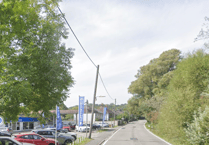ROYAL Surrey County Hospital said it “did not recognise” research conducted by Auto Express magazine which names the NHS foundation trust as one of the top three in England for its car parking charges, in a widely-publicised report last week.
Auto Express said its investigation, based on Freedom of Information Act requests received from 124 of 160 NHS Trusts contacted, showed hospitals were “raking in” an average £949,000 per year from parking.
Its report, which covers the period 2013-16, found the most expensive parking charge for up to two hours was £3.50 levied by the Royal Surrey County Hospital NHS Foundation Trust (RSCH) and The Royal Liverpool and Broadgreen University Hospital.
But RSCH dismissed the findings as inaccurate and said many trusts charged more, particularly London hospitals.
A spokesman said: “We know of a number of trusts who exceed our levels. The parking charges in the hospital are fair and consistent with those across the area.
“Good advances have been made with regards to car parking on the site in the last few years with the addition of more employee spaces, releasing spaces for visitors.
“We have plans in place to extend this further over the next few years. This is subject to planning permission, which is always problematic given our position to the A3 and we are working closely with Guildford Borough Council, Surrey County Council and Highways England to find a long-term solution.
“Like other trusts we would prefer not to charge for parking, but the money generated is used to manage and maintain the facilities, as well as to fund future developments.
“The trust owns its car parks and they are managed on its behalf by a private contractor, who provides the attendants and collects the income.”
A quarter of hospitals diverted the money received into car park maintenance rather than patient care, said the report.
Derby Teaching Hospitals NHS Foundation Trust topped the Auto Express list as the highest parking earner, collecting £10.8 million since 2013. Frimley Health NHS Foundation Trust was in seventh place, collecting £7.4 million.
The investigation found trusts have issued 275,000 fines to patients and visitors worth £2.8million since 2013, amounting to an annual £8,200 a year income from penalty charges.
It also revealed hospitals differ vastly in the amount they charge for parking.
Some set £3.50 as the standard tariff – others offered parking for as little as 60p while 14 per cent of trusts don’t offer any concessions to Blue Badge holders or long-term and terminally ill patients.
The Department of Health told the motoring magazine more than half of NHS hospitals offer free parking, although Auto Express found free parking is only for up to 30 minutes at most of these hospitals.
Only four trusts in England don’t charge for parking.
Responding to the report, Katherine Murphy, chief executive of the Patients Association, described hospital parking charges and fines as “a tax on the ill”.
Moves to scrap hospital parking fees in England have previously been blocked by Parliament, although last year, the British Parking Association (BPA) worked with the NHS to update its parking guidelines.
A BPA spokeswoman said: “While many people attending healthcare facilities expect car parking to be free, the limits on space, costs involved and demand for spaces mean that parking needs to be managed.
“Often the most effective way to do this is by charging.
“Free parking at hospitals in Wales and Scotland has actually made the situation worse. If the users don’t pay for the parking then the trust does.”




Comments
This article has no comments yet. Be the first to leave a comment.